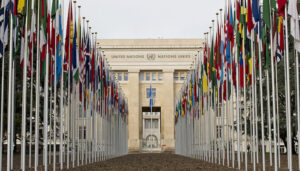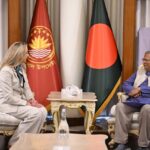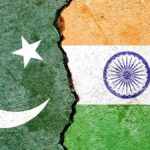 Mohammad Al-Amin: Non-governmental organizations and multinational corporations are not the same as intergovernmental organizations, often known as international organizations (IOs). On the one hand, we are aware that non-governmental organizations are volunteer-based, non-profit, and apolitical. From their central headquarters, multinational corporations operate a variety of units to increase trade and commerce for lucrative ends. The formation of IOs, on the other hand, was based on a variety of scopes, purposes, activities, motives, and collaborations, including those for peace, cooperation, human rights protection, health care, and humanitarian and military assistance. IOs can have basic or complicated structures depending on their boundary, task, and capabilities. IOs would have a wider viewpoint and wouldn’t only be basic gatherings of people with similar interests or contracts. From a legal standpoint, it may be said that it has its own ideals, international systems, public laws, particular principles, representative governments as a member country, treaties, and legal agreements to manage the organization and satisfy its shared objective and standards.
Mohammad Al-Amin: Non-governmental organizations and multinational corporations are not the same as intergovernmental organizations, often known as international organizations (IOs). On the one hand, we are aware that non-governmental organizations are volunteer-based, non-profit, and apolitical. From their central headquarters, multinational corporations operate a variety of units to increase trade and commerce for lucrative ends. The formation of IOs, on the other hand, was based on a variety of scopes, purposes, activities, motives, and collaborations, including those for peace, cooperation, human rights protection, health care, and humanitarian and military assistance. IOs can have basic or complicated structures depending on their boundary, task, and capabilities. IOs would have a wider viewpoint and wouldn’t only be basic gatherings of people with similar interests or contracts. From a legal standpoint, it may be said that it has its own ideals, international systems, public laws, particular principles, representative governments as a member country, treaties, and legal agreements to manage the organization and satisfy its shared objective and standards.
The league of mutual defense, formed in response to the China conflict, served as the foundation for the IOs in 681 B.C., before Christ. However, a number of conferences, agreements, treaties, and unions were established as a result of imperialism, the empires of Russia, Romania, Germany, the Ottoman, and the British, the significance of World War II, colonialism, ideology, alliances, and the fundamentals of international, regional, and political cooperation.
However, a large number of global, regional, and sub-regional organizations with multiple purposes were founded in these independent nations, including the WB, IMF, WHO, FAO, WTO, NATO, EU, SAARC, and others.
In the first place, the United Nations was established to promote social advancement, improved living conditions, and human rights, to uphold international peace and security, and to support climate action and sustainable development. Second, the International Monetary Fund promotes international monetary cooperation, avoids acts that would be harmful to prosperity, and stimulates the expansion of commerce and the economy. Thirdly, the ILO is dedicated to promote social fairness and generally recognized human and labor rights in accordance with its core tenet that labor peace is important for success. Fourthly, the World Bank encourages long-term economic growth and the reduction of poverty by providing countries with the financial and technical assistance they need to carry out initiatives like constructing schools, providing sanitation, safe water, and electricity, battling disease, and protecting the environment. Fifth, the World Trade Organization is responsible for establishing and upholding norms for global trade, resolving commercial disputes, enhancing transparency, and working with other important international economic institutions. Sixth, the Food and Agricultural Organization is in charge of raising the standard of living for people who live in rural areas, expanding agricultural productivity, enhancing nutrition, and promoting global economic growth. Seventhly, the Europe Union is a powerful commercial group that upholds democratic principles within its member states. Without regard to internal borders, the primary duty is to uphold freedom, stability, and dignity while promoting peace. In order to improve the welfare and level of life of South Asians, SAARC was founded in 1985. By enabling everyone to live honorably and to the fullest extent of their abilities, the area will advance economically, socially, and culturally more quickly. The North Atlantic Treaty Organization was established in 1949 to ensure the security of its members and to provide a strong foundation for the peaceful development of the Central and Eastern European nations as a final attempt to counter Soviet forces stationed in central and eastern Europe during World War II. These organizations do play a big part in social systems, administration and management, and international relations.
In contrast, International Non-Governmental Organizations (INGOs) are founded to provide services like high-quality education and healthcare as well as for development, environmental protection, social security, and humanitarian help. More than 100,000 privately owned, non-profit organizations have been established since 1850. International NGOs grew rapidly following World War II. The importance of non-governmental organizations has grown as a result of globalization in the 20th century.
The Ford Foundation, CARE, Red Cross, Red Crescent Societies, Oxfam International, World Vision International, Green Peace, and BRAC are a few important INGOs that are based in Bangladesh. First and foremost, the global movement Oxfam seeks to end injustice and poverty by addressing inequality. Human Rights Watch is another organization that seeks to defend human rights globally. Last but not least, Greenpeace is an independent, nonprofit, international advocacy group that seeks to raise public awareness of environmental issues throughout the world.
A multinational firm has locations and conducts simultaneous operations in several nations. The company frequently has its headquarters in one nation and operates wholly or partially owned subsidiaries in other nations, with at least 25% of its revenue coming from sources outside of their own.
By fostering international trade and exploration between the remote regions of Asia, the Americas, and Africa, the early companies helped fuel the wave of colonialism and empire. Thus, the first MNCs can be attributed to the colonial forays of England and Holland in the sixteenth century. As the world’s first international organization, the British East India Trading Company is widely acknowledged. There are well-known MNCs like Microsoft and Amazon. On the one hand, Amazon’s key research interests are in artificial intelligence, online advertising, cloud computing, and digital streaming. Microsoft, on the other hand, develops and sells goods and services that give consumers more chances, convenience, and value in their lives.
Author: Mohammad Al-Amin is a student of BSS of Public Administration at Comilla University and Coordinator of Youth Net Cumilla. He can be reached at mohammadmasudrana5775@gmail.com







